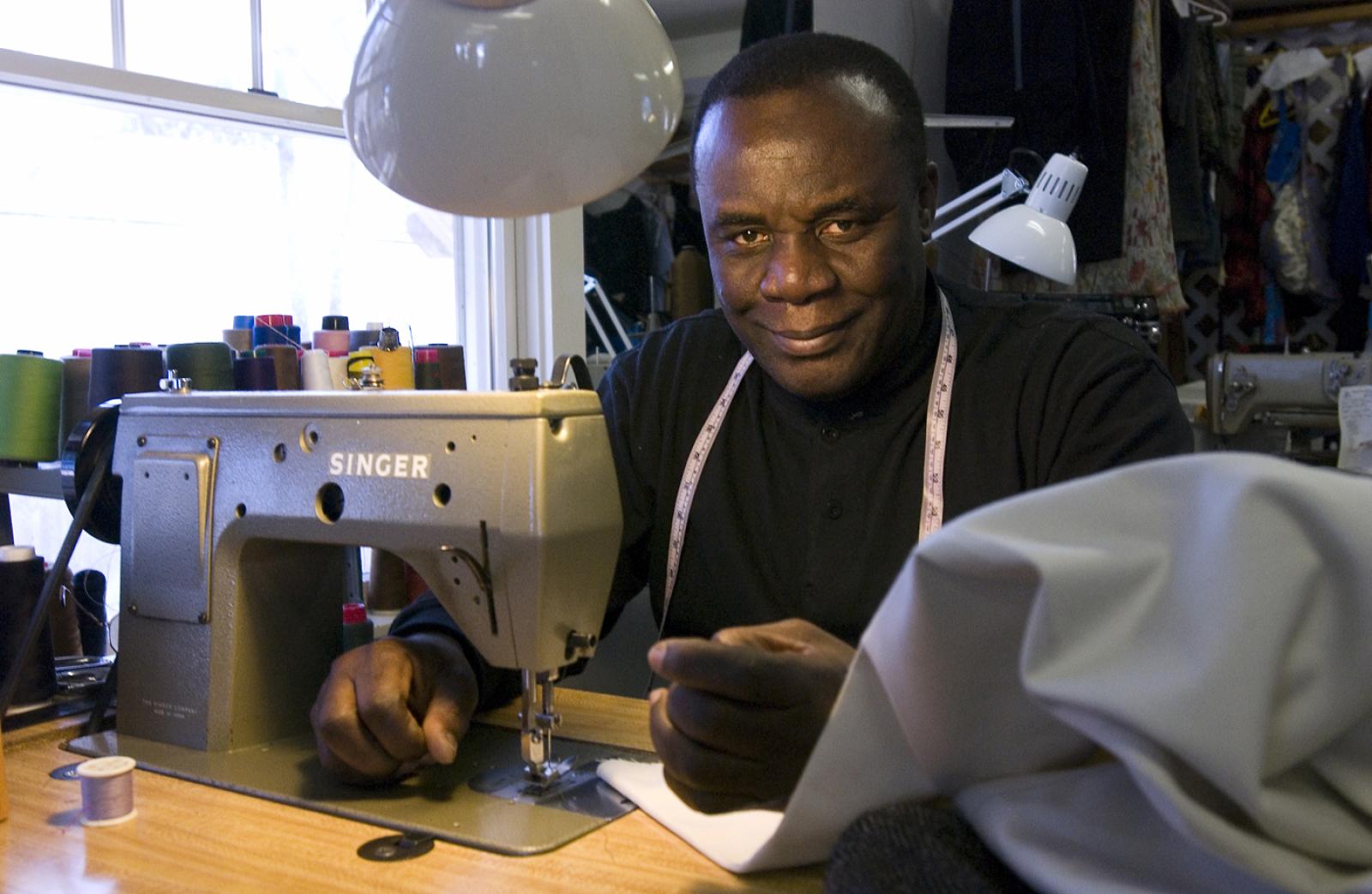With tape measure draped around his neck and a thimble on his thumb, Francois Delphin sits behind a faded Singer machine, tending to the cuffs of a pair of khakis. “A good tailor is very hard to find,” he says, removing his glasses. “It’s not a trade people learn anymore.” Mr. Delphin owns Francois’ Fine Tailoring and Alterations on Upper Main street in Edgartown. He learned to tailor at a trade school near his childhood home in Gonaives, a port city in northern Haiti.
“They all need help, I wish I could help. Whatever I send is nothing,” he said.
In the weeks since the catastrophic earthquake, he has learned of friends and relatives killed in the rubble, others who are injured and many more still unaccounted for and presumably dead. He has been wiring money directly to people he knows on the ground through Western Union but the demand is overwhelming.
“I wish I was rich,” he said. “If I was rich I would send a million bucks right now. I have so many phone calls from Haiti asking me for help.”
Mr. Delphin has been getting most of his news about the disaster from a cousin in Florida who has relayed reports to him from Port-au-Prince, where entire streets have been closed off to accommodate the sleeping homeless. He has also spoken with relatives in Gonaives who have seen an influx of refugees: “As I speak to you, people are leaving the capital to go to the province, to go to the different towns in the countryside to seek life, but there is nothing for them there.”
His hope for the recovery of the country is tempered by a mistrust of aid distribution, a skepticism informed by decades of political malfeasance.
“Money has been sent to Haiti for a long, long time,” he said. “Unfortunately people with a good heart send money, but then when the money goes through the politicians’ hands, they want to squeeze it!”
Mr. Delphin left Haiti in 1978 and last visited in 1999. He says that the country has changed dramatically since his departure.
“At the time I left, [Jean-Claude] Duvalier was still there but at the same time life wasn’t as hard as it is now,” he said, referring to the brutal dictator, also known as Baby Doc whose secret police force, the Tonton Macoutes (organized by his father and former dictator Francois Papa Doc Duvalier), had terrorized the population for decades.
Conditions in Haiti have deteriorated since he left, he says, due to the devastating land management policies of the Haitian government over the years, which, he says, have even contributed to the current disaster. In 1923 forests covered 60 per cent of Haiti. As of 2006 they covered less than 2 per cent and erosion and soil degradation have led to a massive population shift.
“At the time I left, deforestation wasn’t that bad. People lived in different towns in the mountains and farmed. But then everyone had to leave the countryside and try to make a living in the big town. That’s why Port-au-Prince is so concentrated. That’s why so many people died,” he said.
Mr. Delphin also sees in the disaster portents for the world at large.
“Earthquakes are one of the signs of the end of the system that we are in,” he said, adding: “The bible says that the closer we get to the end, the more calamity we’re going to see. Unfortunately some countries have to pay the price more than the others, and that’s exactly what has happened to Haiti. But even in this country you can see it in the crises we’re facing.”
Still, he says, in a catastrophe that refused to discriminate between rich and poor, that razed both slums and presidential palaces, there is a lesson and perhaps reason for optimism amid all the despair. It is his hope that the recovery effort will unite the country, leveling the sharp relief of class in Haitian society.
“There’s a saying in Haiti,” he says. “L’union fait la force. That means being united makes you strong. Everyone has to work together. There are no different classes in Haiti anymore.”
Haiti’s history over the past century has been one often punctuated by misery: corrupt governance, poverty, ecological catastrophe and natural disaster have all played their part. But Mr. Delphin still has faith in Haiti’s greatest asset: its people.
“The people are resilient,” he said. “Haitian people are very proud.”
Mr. Delphin’s Chaleur boutique in Edgartown is a long way from Gonaives, and further still from the ruins of Port-au-Prince, but he says, “I will never forget where I’m from.”




Comments
Comment policy »